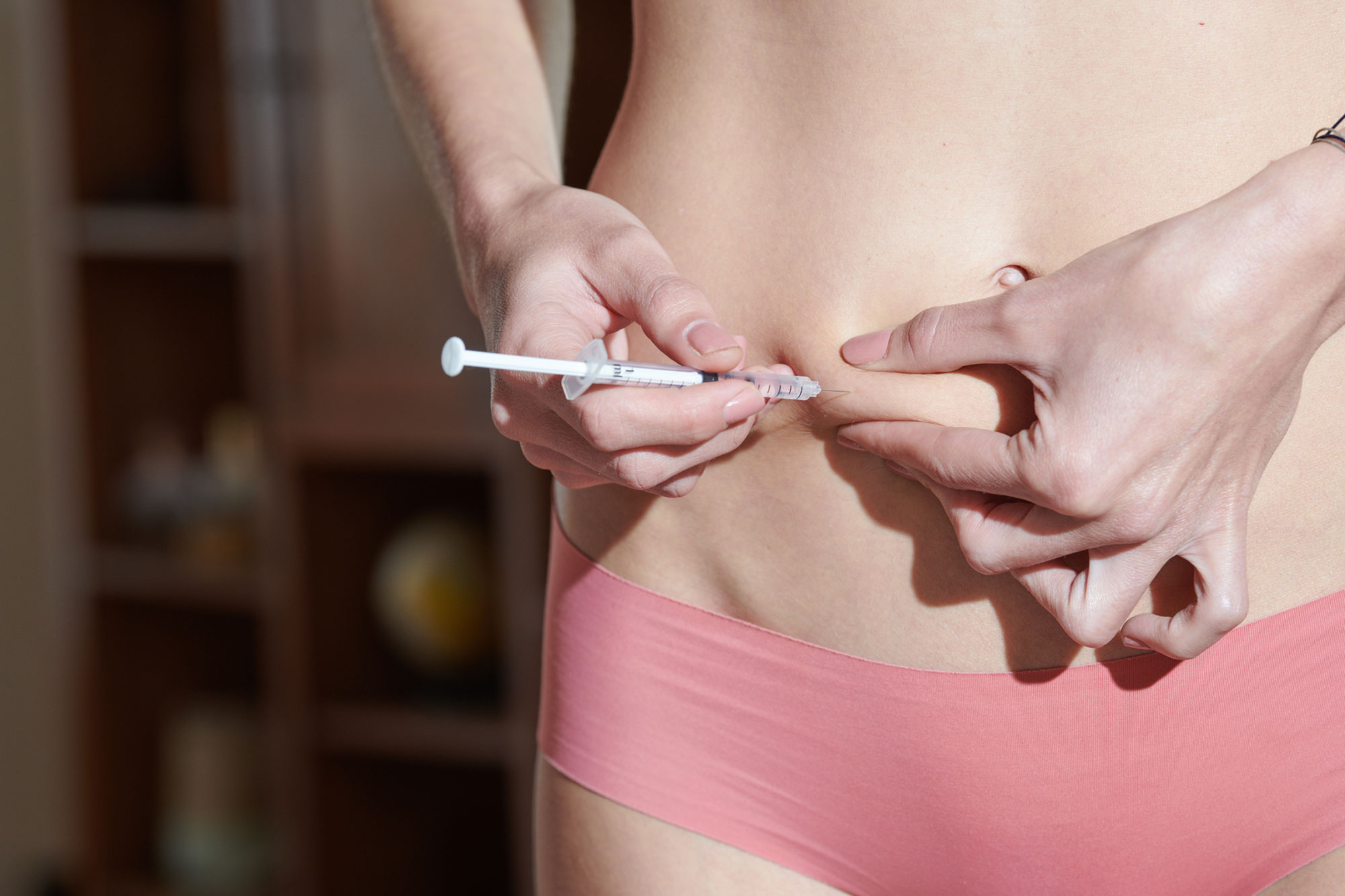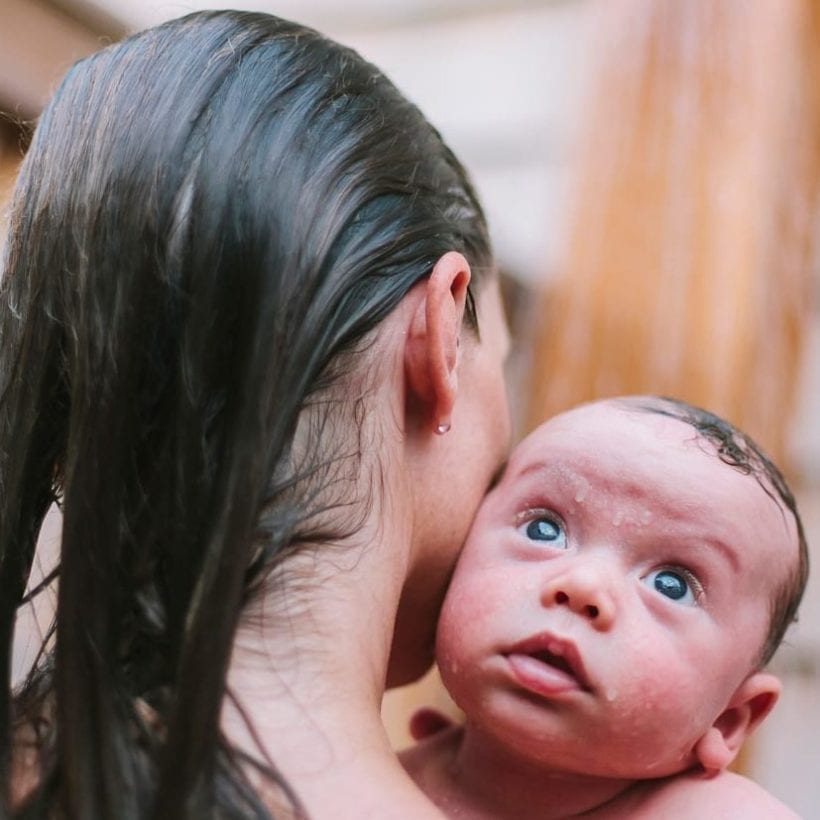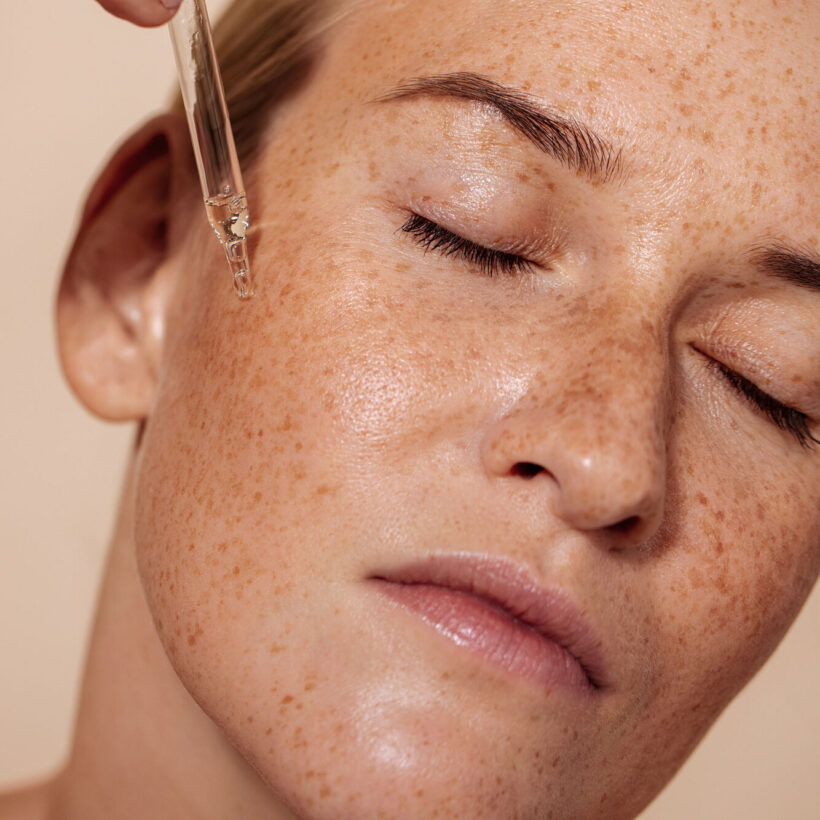Whether you’re positively certain that you’d like to have children someday or still on the fence as to if parenthood is really for you, you’ve probably at least put some thought into the topic, as well as what your path might look like to get there. While it’s true that the birth rates in America have fallen in recent years, it’s also true that it has actually risen in one age range: women in their 40s, according to data published by the Centers for Disease Control and Prevention (CDC).
The median age for a woman to become a mother is now 26, compared to 23 in 1994, per Pew Research Center. There are certainly many reasons for this postponement of parenthood, but one possible cause could be the increasing availability of women to freeze their eggs and preserve their fertility at a young age.
It used to be that a woman would wait until she had difficulty conceiving to seek out help from a fertility specialist, explains Julie Lamb, M.D., F.A.C.O.G., an OB/GYN and reproductive endocrinologist with Pacific Northwest Fertility in Seattle and Bellevue. “If she was unable to conceive with her own eggs, she might move to donor eggs — using eggs from a younger woman to achieve pregnancy,” she says. “While using donor eggs is no one’s first choice, this option allows for a healthy pregnancy when the current set of eggs is no longer working, however, it means that you don’t have the direct genetic link to your child.”

Meet the Experts
Julie Lamb, M.D., F.A.C.O.G., is an OB/GYN and reproductive endocrinologist with Pacific Northwest Fertility in Seattle and Bellevue.
Valerie Libby, M.D., M.P.H, is an OB/GYN and a reproductive endocrinologist and infertility specialist at Shady Grove Fertility in Atlanta, Georgia.
Allison Rodgers, M.D., is an OB/GYN and a reproductive endocrinologist at Fertility Centers of Illinois.
Anate Brauer, M.D., is an OB/GYN and a reproductive endocrinologist at Shady Grove Fertility in N.Y.C.
In comes egg freezing, which can solve this problem for countless patients by giving them the opportunity to preserve their eggs at a young age when they’re less likely to be in short supply and have abnormalities.
What does it mean to freeze your eggs?
Egg freezing, also known as mature oocyte cryopreservation, is a process that involves extracting and harvesting a woman’s eggs from her uterus and then freezing them with the goal of potentially one day implanting them for a future pregnancy.
As we get older, the quality and quantity of our eggs decreases, but the state of our uterus doesn’t change all that much, explains Valerie Libby, M.D., M.P.H, an OB/GYN and reproductive endocrinologist and infertility specialist at Shady Grove Fertility in Atlanta, Georgia. “The likelihood of a successful pregnancy and live birth is related to the age of the egg, not the age of the woman carrying the pregnancy,” she says. “So egg freezing allows you to freeze your eggs at a younger age for you to use at any time up until the age of 51 (at least that is the SGF age limit policy).”
What does the egg-freezing process entail?

During the egg-freezing process, a patient is given injectable medications for approximately 10 days. During that period of time, the patient undergoes monitoring including ultrasounds and blood work to see how the follicles, or fluid-filled sacs that continue to become eggs, are growing, explains Allison Rodgers, M.D., an OB/GYN and reproductive endocrinologist at Fertility Centers of Illinois. Follicles are fluid-filled sacs that continue the eggs. “When the largest follicle gets to be about 2 centimeters or 1 inch, the final medication, called a trigger, is given, and this helps mature the eggs,” she says. “About 36 hours later, you undergo an egg retrieval: a 15-minute procedure where a small needle is placed with the help of an ultrasound to collect the eggs from the ovary right through the vagina.” Patients are mostly always sedated during the egg retrieval.
What OB/GYNs want you to know about egg freezing
The egg-freezing process is relatively new. In fact, the very first human born from a frozen egg was in 1986! The technology has developed and advanced significantly over the last 15-20 years, as has its use case. “Initially, it was used just for oncofertility patients (those affected by cancer), but has now evolved into elective or social egg freezing,” says Dr. Libby.
The number of women who froze their eggs in the year 2009 was just 475; by 2018 that number climbed to 13,275, per data from the Society for Assisted Reproductive Technology. “Older technology utilized slow freezing techniques whereas the newer process involves rapid vitrification and has better outcomes, almost equivalent to embryo freezing,” Dr. Libby explains.
The sooner you freeze your eggs, the better
The number of potential eggs available for pregnancy as well as the quality of those eggs declines as you age until there are zero remaining at the time of menopause, which tends to happen between ages 45 and 55, per the National Institute on Aging. “While the ovaries age, the uterus doesn’t in the same way, so using these eggs earlier in life or saving them by freezing for later use can make a huge difference for women and their ability to achieve their future family goals,” explains Dr. Lamb. “Unfortunately, looking and feeling young doesn’t equal good fertility, and unintended childlessness is a common consequence of delayed childbearing.” For this reason, she recommends preparing for your fertility in the same way you plan for your financial future — by learning, planning, and saving.
While there’s no specific age for when to freeze your eggs, the most common age range for doing so is around 30-35 years old, according to Dr. Libby. “Over the years it has become more socially acceptable so it is more popular and there is now better technology,” she says. “My personal opinion is whenever you have the financial resources and if you are interested in doing it, then it’s time.”
Egg freezing isn’t easy
It’s a good idea to consider egg freezing as an outpatient operation. While the procedure itself lasts only 15 minutes or so, the stimulation portion begins roughly two weeks prior and can come with a myriad of side effects, including bloating and fatigue, not to mention several vaginal ultrasounds and blood draws to prepare the ovaries for the procedure, explains Dr. Lamb. “While most of our patients dread the needles and worry about mood swings, it is often less physically demanding and more emotionally demanding than anticipated,” she says. “The process of egg freezing can be as emotionally exhausting as the process of infertility may potentially be in the future. Feelings of frustration, anger, sadness, blame, and isolation can occur.”
You may have to do more than one egg retrieval

A single egg retrieval doesn’t always guarantee a healthy number of eggs that can be frozen. In fact, sometimes the eggs that are extracted don’t make it after they are extracted and then tested for abnormalities. “Not every egg will survive the thaw, fertilize, grow, or be genetically healthy, or make a baby,” says Dr. Rodgers. For this reason, she recommends that her patients consider doing 2-3 cycles of treatment to increase the chances of a successful pregnancy down the road.
Egg freezing is expensive
One of the largest drawbacks to egg freezing is the cost. Not only is it expensive, but it is often not covered by insurance. There’s also always the reality that the eggs might not work in the future, so there’s a lack of a guarantee when it comes to your financial investment. “Reproductive biology is very inefficient, and in some cases, you can save a lot of eggs and still not have enough to make a baby when you go to use them,” Dr. Lamb explains. “Each patient is unique, and success of treatment varies widely case by case and this can make the success of egg freezing difficult to predict in advance (at the time of freezing), which is challenging for many women as they evaluate if they have saved enough eggs to build their future family.”
There are relatively few complications
While there is some risk involved, especially seeing as an egg retrieval is technically a surgery, Anate Brauer, M.D., an OB/GYN and reproductive endocrinologist at Shady Grove Fertility in N.Y.C., explains that, in the right hands, egg freezing is generally a very safe option for fertility preservation. “It’s an insurance plan you hope to never have to use, but is irreplaceable when you need it,” she adds.
You can have your fertility tested at any time
Even if you’re not sure you want to freeze your eggs, you can always have your doctor run basic bloodwork to check on your fertility. This usually involves an AMH test, which measures the amount of anti-müllerian hormone in your blood; this marker can help doctors determine an estimate of how many eggs you still have. “It doesn’t tell you if it will be hard to achieve pregnancy, but it does tell you if you have eggs left,” says Dr. Lamb. “Every woman is different, and you don’t want to find out when it is too late that you are out of eggs.”
When in doubt, doctors recommend doing it
Dr. Brauer has had countless patients who are in relationships, but wish to delay childbearing and are considering egg versus embryo freezing with their partner’s. This especially means whether or not to freeze all eggs that have not yet been inseminated or fertilized or to only freeze the embryos that have been successfully fertilized. Dr. Brauer alway recommends freezing all eggs just in case, “Life is unpredictable; if you want to keep your options fully open or if there is any doubt at all, freeze eggs,” she says. “Additionally, many patients that freeze eggs end up not using them and conceive easily on their own and discarding an egg is a much easier emotional and ethical decision than discarding an embryo.”







